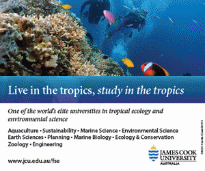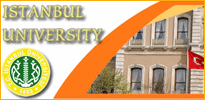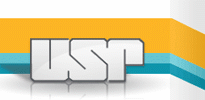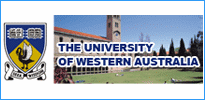United Arab Emirates: United Arab Emirates Education Profile 2012
2012/04/05
United Arab Emirates Education Profile 2012
A fast growth in population has necessitated a important investment in education. Today, the UAE offers a comprehensive education to all male and female students from kindergarten to university, with education for the country’s citizens being provided free at all levels. There is also an extensive private education sector, while several thousand students, of both sexes, pursue courses of higher education abroad at Government expense.
Much has been achieved since the early 1970s but efforts are now being made to improve the educational environment for all pupils, in line with a re-evaluation of the role of government. In particular, Abu Dhabi Education Council (ADEC), is spearheading privatisation of the education sector in Abu Dhabi.
School boys 95% of all females and 80% of all males who are enrolled in the final year of secondary school apply for admission to a higher education institution in the UAE or study abroad. Nationals can attend government tertiary-level institutions free of charge, and a wide and rapidly increasing range of private institutions, many with international accreditation, supplement the public sector. The Al Ain-based United Arab Emirates University (UAEU) continues to be the country’s flagship national institution of higher education, whilst newer institutions such as Zayed University (ZU), which has campuses in Abu Dhabi and Dubai, were established in 1998 by the Federal Government to educate national women and prepare them to actively participate in society. The Higher Colleges of Technology (HCT), on the other hand, offer a more technically oriented education in 12 well-equipped colleges spread throughout the United Arab Emirates. HCT, in conjunction with its commercial arm, the Centre of Excellence for Applied Research and Training (CERT), prides itself on responding quickly and effectively to current needs in the regional and international workplace.
Notable private institutions include the American Universities of Sharjah and Dubai, Sharjah University and the Ajman University of Science and Technology. Recent entrants to the educational marketplace include Abu Dhabi University, Al Hosn University in Abu Dhabi and an Abu Dhabi chapter of the Sorbonne. Dubai is also setting-up a 2.33-million-square-metre, multi-university complex, Dubai Knowledge Universities (DKU), in the heart of its ‘Academic City’. The UAE also has several vocational and technical educational centres for those seeking practical training in their chosen careers.
Indeed, now that the educational infrastructure is in place, the focus is on ensuring that the youth of the country are ready to meet the challenges of the twenty-first century workplace. In addition, to ensure that there are enough jobs for these emerging graduates, emiratisation of the workforce is being encouraged by the Government, especially in the private sector, where UAE nationals account for a very small percentage of the total workforce. Some progress has already been made in banking, insurance and human resources.
Breakdown of the education system
Primary and secondary education is provided for all UAE citizens. The existing educational structure, which was established in the early 1970s, is a four-tier system covering 14 years of education. Primary school education is compulsory for all UAE citizens. Government policy is to provide staff/student ratios of 1:20 at kindergarten and primary levels; and 1:15 at intermediate and secondary levels. The existing staff/student ratios are well within this proposed range.
Educational opportunities in the UAE have blossomed since the establishment of the Federation when only a tiny minority of the urban population had access to formal education. Today, the UAE offers a comprehensive education to all male and female students from kindergarten to university, with education for the country’s citizens being provided free at all levels. There is also an extensive private education sector, while several thousand students, of both sexes, pursue courses of higher education abroad at Government expense.
Now that the infrastructure is in place, the educational focus is on devising and implementing a strategy that will ensure the youth of the country are ready to meet the challenges of the twenty-first century workplace.
A major practical shift in timetabling took place in 2006 following the Federal Government’s announcement that from 1 September 2006 the weekend schedule would be changed to make Friday and Saturday the official weekend for all public sector establishments as well as government schools and universities.
PRIMARY AND SECONDARY EDUCATION
Education at primary and secondary level is universal and compulsory up to ninth grade. This takes place in a four-tier process over 14 years: 4 to 5 year-olds attend kindergarten, 6 to 11 year-olds attend primary schools, the preparatory stage caters for children aged between 12 to 14 years, and 15 to 17 year-olds attend secondary schools. The emiratisation of teaching staff in government schools is scheduled to reach 90 per cent by 2020, in order to ensure that the Islamic principles and traditions of the UAE are maintained.
Over 40 per cent of pupils attend private schools. Some of these offer foreign language education geared towards expatriate communities, usually preserving the culture and following the curriculum of the students’ countries of origin.
A Cabinet decision issued in 2001 excluding expatriate students from government schools, was rescinded in mid-2006. Commencing in the academic year 2006/07, admission for expatriate students will be based on merit and fees will be levied.
Abu Dhabi Education Council (ADEC), an independent Abu Dhabi-based corporate body which was established by Sheikh Khalifa in 2005, has been entrusted with the task of developing education and educational institutions in the emirate. The council will work closely with the Ministry of Education in formulating the emirate’s education plan within the framework of the UAE’s general education policy.
ADEC has already announced a new initiative to improve the quality of public education. The project entitled ‘Public-Private Partnership for Public School Management’ enables leading local and regional private education providers to manage selected public schools in the Emirate of Abu Dhabi in conjunction with ADEC. Launched as a three-year pilot programme commencing in September 2006, selected Abu Dhabi schools, including kindergarten and primary schools for boys and girls in the three educational zones of Abu Dhabi, Al Ain and the Western Region, will be involved in the project. It is hoped that participating schools and their students will enjoy a richer educational environment, including better school facilities, efficient and less bureaucratic school administration systems, modern teaching and assessment methods, up-to-date curricula, more intensive use of information technology and additional extra-curricular activities. Principals and teachers, including national staff, will experience improved working conditions and professional development opportunities.
ADEC issued a decree in 2006 abolishing fees at model schools in Abu Dhabi. ADEC will be responsible for all costs at the model schools, which will be directly involved in the development and evaluation of the educational process. ADEC and the Model Schools Committee are setting new standards for admission of students.
ADEC has also entered into an agreement in which Zayed University will assist in developing the English language skills of elementary level students at four model schools. Thirty faculty members from ZU will work with the first and fourth grade students at these schools, observing and evaluating English language teaching methods, and designing modern academic programmes. The initiative will be extended to all schools at a later stage.
IT EDUCATION
The Ministry of Education is constantly honing its educational strategy to ensure that the programmes developed in its schools comply with international standards, with particular focus on introducing the latest IT resources at all levels. For example, one of the goals is to provide a computer for every ten children in kindergarten, every five pupils in primary schools, every two students in preparatory schools and one computer per student in universities.
That IT education in the formative years has become a major priority for the UAE is underlined by the success of the Sheikh Mohammed bin Rashid IT Education Project (ITEP), which was launched in 2000. As well as installing computer labs in all participating schools, and creating a comprehensive cutting-edge curriculum, ITEP also provides an invaluable online educational resource at www.itep.ae. ITEP now provides courses in 40 high schools in the UAE (20 in Dubai, 20 in Abu Dhabi) and over 13,000 students pass through the programme every year. ITEP’s trainee pupils achieved 97 per cent success rate in courses in the 2005/06 academic year.
HIGHER EDUCATION
The UAE has established an excellent and diversified system of higher education in a very short period of time. Nationals can attend government institutions free of charge, and a wide range of private institutions, many with international accreditation, supplement the public sector. The country now has one of the highest application participation rates in the world. Ninety-five per cent of all females and 80 per cent of all males who are enrolled in the final year of secondary school apply for admission to a higher education institution or to study abroad.
UAEU
The Al Ain-based United Arab Emirates University (UAEU), which opened in the academic year 1977/78, continues to be the country’s flagship national institution of higher education and is committed to its role as the leading teaching and research institution in the UAE. UAEU offers over 70 undergraduate bachelor degrees and a number of graduate programmes in a wide range of disciplines. International accreditation has been awarded to the professional academic programmes and the non-professional programmes undergo periodic external evaluation by international experts to ensure that they meet international standards. Collaboration with international institutions also opens up new opportunities for UAEU’s students.
UAEU is focusing on research and graduate studies and is moving from an open enrolment to a more restricted policy. The number of students enrolled at UAEU has increased from 502 in 1977/78 to 14,741 in the first semester of the academic year 2006/07. Enrolled male students represent 21 per cent of the total, while female students constitute 79 per cent. The total number of faculty members in the University was 700. This growth has necessitated the building of a new campus at Al Maqam, Al Ain that will provide 280,000 square metres of additional educational and residential facilities. In line with the UAE’s focus on constructive public-private partnerships in education, UAEU and Mubadala Development Company (see Economic Development) executed a 30-year concession agreement in 2004 that will enable the development of the new facilities on a BOOT basis (Build Own Operate and Transfer).
ZAYED UNIVERSITY
Zayed University (ZU) was established in 1998 by the Federal Government to educate UAE national women. Both ZU campuses in Abu Dhabi and Dubai are governed by a single administration and offer similar programmes. ZU’s Dubai campus relocated to the Academic City complex in the Al Ruwayyah area in 2006. This Dh370 million facility encompasses a total area of 711,000 square metres comprising six colleges, departments and laboratories.
ZU is organised academically into five colleges: Arts and Sciences, Business Sciences, Communication and Media Sciences, Education, and Information Systems. The primary language of instruction is English, but the University expects its graduates to be fully bilingual in English and Arabic, proficient in the use of information technology, and strong in quantitative and research skills. ZU is currently engaged in cooperative relationships with a number of leading institutions throughout the world.
The reason for ZU’s success lies partly in innovativeness. Smart Square, located in Dubai Internet City (DIC), is an example of the ZU approach. This cooperative venture between ZU and IBM, which was inaugurated in early 2003, established a new business partner in the UAE for private and public institutions to create and enhance their e-business and communication activities. Tanmia sponsors a section of the graduate on-the-job training for projects undertaken by Smart Square as part of its policy of equipping nationals with the necessary skills for today’s demanding work environment.
The ‘Women as Global Leaders’ conference organised by ZU at Emirates Palace Hotel in Abu Dhabi in 2006 (see section on Women) is but one of a number of programmes run by the University to ensure that their students are well-prepared to actively participate in society.
HIGHER COLLEGES OF TECHNOLOGY
A system of UAE colleges offering a more technically oriented education was devised in 1988. The four founding Higher Colleges of Technology (HCTs) began the new experiment with an enrolment of 239 students. Today, 12 men’s and women’s colleges in Abu Dhabi, Al Ain, Madinat Zayed, Dubai, Ra’s al-Khaimah, Sharjah and Fujairah provide a diversity of programmes to over 15,000 students in modern, technologically equipped campuses. New colleges and facilities are being added to the list on a regular basis. Built on a total area of 43,000 square metres and costing around Dh200 million, the new campus of the Dubai Men’s College at Academic City in Al Ruwayyah, which was inaugurated in 2005, provides a truly digital environment. Everything from assignments and mark sheets to missed classes and the library is online and can be accessed by each of the 2000 students and 300 faculty members at any point in time.
The new HCT Madinat Zayed campus, serving the needs of students in Abu Dhabi’s Western Region, welcomed its first class of students in September 2006.
The HCT and its commercial arm, The Centre of Excellence for Applied Research and Training (CERT), through a number of strategic alliances with multinational business organisations and prestigious international training institutions, pride themselves on responding quickly and effectively to current needs in the regional and international work place, providing professional development and lifelong learning opportunities for the UAE, the Gulf region, and – through online training courses – to many other parts of the business world.
CERT, which was founded in 1997 and is now the largest private education provider in the region, has also been at the forefront of providing specialised customised training, promoting entrepreneurship and creativity, and facilitating technological advance through its technology park. CERT is collaborating in applied research with industry leaders such as Intel, Microsoft and IBM, and in 2006 it will become the first organisation in the region to offer supercomputing power through its acquisition of the IBM Blue Gene, the fastest computing platform in the world. CERT’s clients are large public and private sector organisations in the region, including the UAE Military, and the Presidential Court.
Having been converted into a joint stock company in 2005, CERT is now primed for the next stage in its development. Plans are in place to raise Dh1 billion (US$272 million) and offer 55 per cent of its share capital to the public through the first education and technology IPO in the Middle East. In addition to the lure of good financial returns, investors will be able to participate in a project that has significant socioeconomic benefits for the country and its people.
CERT is planning a unique ‘CERT City’ concept, based on the creation of a fully integrated community of research, innovation and entrepreneurship. Included in this world of ‘learning, living and leisure’, will be early-learning centres for pre-schoolers, world class primary and secondary educational institutions, the CERT College of Arts and Applied Science, CERT University (for undergraduate studies), the CERT Open University dedicated to postgraduates, the Emirates Centre for Entrepreneurship and the Jumeirah Institute for Executive Leadership. Supporting these centres of excellence will be a well-equipped convention centre, five-star hotel facilities, housing estates, shopping malls and sports, recreation and leisure facilities.
The first CERT Education and Research City is being established in Abu Dhabi on a site of over 1 million square metres, to be followed by similar ventures in Dubai and Sharjah, some of the other emirates, and eventually throughout the region.
PRIVATE INSTITUTIONS
Many excellent private institutions offer a wide range of tertiary-level opportunities. Notable institutions include the American Universities of Sharjah and Dubai, Sharjah University and the Ajman University of Science and Technology. The Ministry of Higher Education and Scientific Research is responsible for
the accreditation of institutes and degrees and its website, www.uae.gov.ae/mohe/, provides a comprehensive list of recognised institutes and programmes.
Abu Dhabi University (ADU), which opened its doors in 2003, is in a process of continued development. It has campuses both in Abu Dhabi and Al Ain and has unveiled plans for a 4-million-square-metre campus in Khalifa City, with provisions for flexible future expansion. The first phase includes 70 classrooms and laboratories, administrative headquarters and accommodation. Plans are in place for a medical teaching facility, a graduate centre, a student centre and sports facilities. ADU, which has direct access from the Al Ain highway and is very conveniently located for students from Khalifa City, Abu Dhabi and Al Ain, accepted its first students for the academic year beginning in September 2006.
Al Hosn University in Abu Dhabi opened in 2005. This new private university, which is supported by Abu Dhabi Holding Company (ADHC), will initially be operating from two separate premises for men and women near Mussala Al Eid along the airport road in Abu Dhabi. Starting with three faculties – Engineering, Business and Arts and Social Sciences – Al Hosn University will offer a unique set of disciplines, some of which are being introduced for the first time in the UAE. A large plot of land in Madinat Khalifa has been earmarked by the Abu Dhabi government for the construction of a permanent campus.
An Abu Dhabi chapter of the Sorbonne University was also established in 2006. This chapter is wholly owned by ADEC and although headquartered in Abu Dhabi it is authorised to establish branches of the University in the rest of the UAE and in the region. The University will award qualifications under French regulations and in accordance with academic standards set by the Sorbonne in Paris. Instruction will be in French and all subjects will be taught by tutors from the Sorbonne. Credits accumulated by students at the UAE chapter can be transferred to any European university. The new University, which is open to students of both sexes and of all nationalities, will initially operate from an interim campus, but will move to a permanent home by early 2008.
Knowledge Village (KV), established in 2003 in the Dubai Free Zone for Technology and Media, houses more than 200 companies and institutes for training and education. Over 6000 students come to the campus every day. Some 25 per cent of them are from countries in the Middle East, whilst other students from Arab and foreign communities residing in Dubai. KV offers undergraduate, postgraduate, MBA and PhD programmes in fields such as computing, technology, business management, life science, fashion and media.
Dubai Knowledge Universities (DKU) is being established as a multi-university complex on 2.33 million square metres in the heart of Academic City in Dubai. DKU is targeting students from the region who are unable to go abroad to study for various reasons. On completion DKU will be able to accommodate 20 to 30 universities and house between 30,000 and 40,000 students and will be designed to provide a quality of student life and services that is international, culturally diverse and dynamic. The giant campus will have two wings, a west campus for undergraduates and an east campus for graduates.
Dubai Academic City (DAC), marketed as ‘a new global fully integrated academic destination’, was officially launched in 2006. Investment in this phased project, which is being built on a 12- million-square-metres campus, is forecast to exceed Dh12 billion (US$3.27 billion). A completion date is set for 2012.
Other Institutions
In addition to the higher level institutions outlined above, the UAE also has several vocational and technical educational centres for those seeking practical training in their chosen careers. These include the Emirates Institute for Banking and Finance, the Abu Dhabi National Oil Company Career Development Centre, the Dubai School of Government, and The Emirates Aviation College for Aerospace and Academic Studies.
- United Arab Emirates News
-
- AFGHANISTAN: UNWTO: International tourism – strongest half-year results since 2010
- INDIA: Global appeal for Dubai's first FinTech accelerator
- CHINA: Damac awards $953m worth of contracts so far in 2017
- UNITED ARAB EMIRATES: Emirates Academy of Hospitality ranked among world’s top 10
- UNITED ARAB EMIRATES: UAE to standardise national school system
- BAHRAIN: Abu Dhabi says Gulf air embargo only applies to Qatar firms
- Trending Articles
-
- SOUTH AFRICA: Nigeria and South Africa emerge from recession
- UZBEKISTAN: Former deputy PM named Uzbekistan Airways head
- BAHRAIN: Bahrain issues new rules to encourage fintech growth
- BAHRAIN: Aluminium Bahrain’s Line 6 Expansion Achieves 25 Percent Completion
- ARUBA: Director of Tourism Turks and Caicos after Irma: Tourism, visitors, hotels current status
- AUSTRALIA: Western Australia joins two-thirds of country to ban fracking











